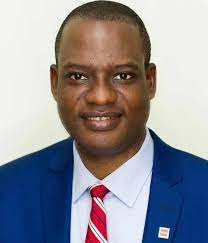There are strong indications that Federal Government may exempt micro and small enterprises with annual turnover of N25 million and below from some forms of taxes as part of its current fiscal policy and tax reform initiative aimed at improving the efficiency of the nation’s tax system.
The Chairman Presidential Fiscal Policy and Tax Reforms Committee, Mr. Taiwo Oyedele, gave this hint during his presentation of the recommendation at the Committee’s closing session in Abuja.
Specifically, the tax expert said that the committee was proposing that 95% of informal sector operators should be exempted from paying taxes.
According to him, the proposal will be feasible by exempting businesses with annual turnover of N25 million a year or less from the various taxes hindering their progress over time.
Oyedele clarified: “So, we think that 95 per cent of the informal sector should be legally exempt from all taxes: withholding tax, company income tax, and even payee taxes on their staff. We’re using data to inform our decisions. Currently, if you earn N25 million a year or less, you don’t have to pay company income tax; you don’t have to worry about VAT.
“We think that the informal sector is people who are trying to earn a legitimate living; we should allow them to be and support them to grow to a point where they can then have the ability to pay taxes,” he added.
Based on the foregoing, the committee’s Chairman said the proposed new reforms would focus on the top five per cent of that sector, the medium and big enterprises as well as middle class and the elite, for taxes, adding that the committee is drafting laws to effect the necessary changes in the country’s fiscal policy and tax reform ecosystem.
According to him, the new laws will ensure that reviews are sustained by all governments coming in, stressing that the committee doesn’t “want this whole effort to go down the drain after one or two years.”
To ensure the desired fiscal goals, Oyedele, however, urged all stakeholders to fully cooperate with the government in implementing a new fiscal and tax policy that would benefit the general good of citizens.
He said: “We think that the days of being above the law in paying taxes are over. This is the same thing we’re saying to our leaders, whether they are elected or appointed. We think they have to lead by example by showing that they have paid the taxes, not only on time but correctly, to the lawful authorities as contained in the various laws.”
Noting that some of the taxes Nigerians complained about are already provided for in the Constitution, which the committee has examined and called for review, Oyedele said the committee’s report would be passed through the normal legislative process to give it full legal backing.
On the committee’s expectations, he explained that the “expectation is that as we progress from idea, proposal, and implementation, you’ll see fewer and fewer of those issues, and then you’ll see harmony in the direction of the fiscal system.
“Not only in the number of taxes we collect, you will also see an improvement in how those monies are being spent. In terms of priority of spending, in terms of the efficiency of spending and in terms of focusing on what impacts on the lives of the majority of our population that live in multi-dimensional poverty.
Oyedele disclosed that the committee had been working with the sub-nationals and the local government councils to harmonise the taxes to a single digit in the country, adding that the members “think we can keep that within single digit across local government, state and federal government combined, and then improve the efficiency of collecting those taxes.”
Speaking at the event, the Vice President, Sen. Kashim Shettima restated the present administration’s commitment to revitalise revenue generation in the country, adding that “our aim remains the revitalisation of revenue generation in Nigeria while sustaining an investment-friendly and globally competitive business environment.






